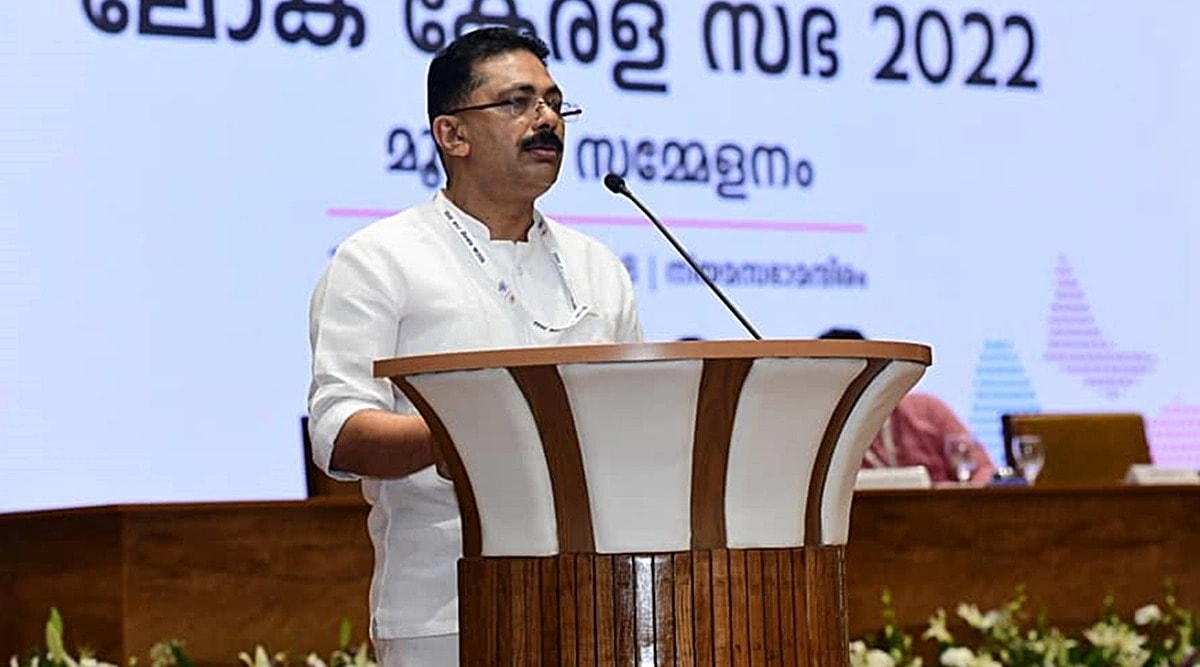 CPI(M)-backed legislator and former minister K T Jaleel (Facebook/K T Jaleel)
CPI(M)-backed legislator and former minister K T Jaleel (Facebook/K T Jaleel)A Delhi court dismissed a complaint filed against Kerala MLA K T Jaleel over his alleged controversial remarks on Kashmir by observing that “society’s outrage alone is not justification for suppressing free speech.”
Additional Chief Metropolitan Magistrate (ACMM) Harjeet Singh Jaspal, in his order passed on Friday, said he “is mindful of the fact that the alleged statements of the accused are unpopular, outrages and are rather offensive views of the author”. The ACMM held that the comments can be “called the opinion of the author (though unsupported by any authority or survey etc. and is arguably incorrect) and is thus protected by the fundamental freedom of article 19.”
“However, it must be kept in mind that the freedom of speech protects actions that the society may find very offensive. The society’s outrage alone is not justification for suppressing free speech,” the ACMM stated. The court stressed that “in a democracy, freedom of speech and expression opens up channels of free discussion of issues.”
On the eve of Independence Day this year, CPI(M)-backed legislator and former minister K T Jaleel – in a detailed Facebook post on his Srinagar visit – had referred to Pakistan-Occupied Kashmir (POK) as “Azad Kashmir”. Referring to Jammu and Kashmir as “India-occupied Jammu and Kashmir”, he had also criticised the Centre’s decision to revoke the erstwhile state’s special status. Following this, a case was filed by advocate G S Mani at Rouse Avenue Court.
“Freedom of speech plays a crucial role in the formation of public opinion on social, political and economic matters. Freedom of speech and expression, just as equality clause and the guarantee of life and liberty has been very broadly construed by the Supreme Court right from the 1950s. It has been variously described as a “basic human right”, “a natural right” and the like. It embraces within its scope the freedom of propagation and interchange of ideas, dissemination of information which would help formation of one’s opinion and view point and debates on matters of public concern,” the court said.
The court also relied on decisions taken by Indian and US courts to arrive at its conclusion. It relied on a Delhi High Court judgment, involving painter M F Hussain, to state that the high court “observed that our Constitution by way of Article 19(1), which provides for freedom of thought and expression, underpins a free and harmonious society”. The court also relied on the US Supreme Court judgment titled Texas Vs Johnson which decided on the controversial question of flag burning and held that “free speech ought to be protected, though it may be against the popular beliefs of the society or may even be offensive to some.”
The court said “freedom of speech is the bulwark of democratic government.”
“This freedom is essential for the proper functioning of the democratic process. The freedom of speech and expression is regarded as the first condition of liberty. It occupies a preferred position in the hierarchy of liberties giving succour and protection to all other liberties. It has been truly said that it is the mother of all other liberties,” the court said.
The court added that “while an informed citizenry is a precondition for meaningful governance in the political sense, albeit not every incorrect political statement, even those concerning geographical boundaries of India, unleashes the wrath of criminal prosecution.”
It also noted that “constitutional freedom of speech and expression is not absolute and can be subjected to reasonable restrictions, the framers of our Constitution recognized the importance of safeguarding this right since the free flow of opinions and ideas is essential to sustain the collective life of the citizenry.”